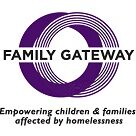November 19, 2022 – The Dallas Morning News – Leah Waters
Local social service groups already hit hard by the pandemic are entering a holiday season with increased demand and calls for help.
Nonprofits that provide food, clothing, financial donations and other services to lower-income households struggling to make ends meet are facing new and growing problems due to rising housing costs and inflation.
Jay Dunn, managing director of The Salvation Army of North Texas, says the spike in costs has driven working families who have historically been able to make ends meet to seek out charitable help.
“It’s like dominoes starting to fall,” Dunn said, citing the new problem of more people’s wages not keeping up with climbing expenses.
The Salvation Army has seen across-the-board increased needs for their youth and child development, economic mobility, crisis prevention and recovery and counseling services.
The organization is also getting more requests for rent, utility and food assistance with a new trend of working families who still have income but can’t keep up. More families are also seeking child care help because they are working more jobs.
Jeff Smith, senior manager of communications with North Texas Food Bank, said his organization has always served the working poor and saw a sharp increase in demand when people lost their jobs due to COVID-19.
NTFB historically provided about 7.3 million meals a month before COVID-19. From the early stages of the pandemic through February, the nonprofit gave out 10.5 million meals a month; since March when inflation began hitting families hard, the group has given an average of 12.3 million meals a month.
“Now with inflation rates at their highest point that they’ve been in 40 years… Texans are spending $325 more each month on food today than they did the same time last year,” Smith said.
Mesquite-based food pantry Sharing Life has seen an uptick in clients since the start of the pandemic, said Teresa Jackson, the nonprofit’s founder.
The pantry has seen an increase in needs from not only low-income families, but also more moderate-income people who previously were not regular clients.
“If you’re making $15 to $20 an hour in this economy, you can’t make it alone,” Jackson said. “They’re not going to earn enough to meet the basic needs of their families.”
In 2021, the food pantry served nearly 160,000 families, most of whom are from Dallas County, Jackson said.
Nonprofits and community groups who serve people experiencing homelessness are also reporting dramatic increases in housing-insecure families.
“Advocates often say for every $100 increase in average rent, you see a 9% increase in homelessness,” Dunn said. “And we’re definitely seeing that our shelter in Fort Worth, at one point, just a few weeks ago, was operating at 383% of its capacity.”
The Salvation Army is also renting hotel rooms for people in need of housing, which has triggered the organization to tap into emergency funds.
The number of families sleeping in their cars has almost doubled compared to a year ago, according to data from Family Gateway, a service provider for families facing homelessness. In 2022, 841 families reported to be living in their cars or other locations, compared with 441 last year.
More than 3,300 families reached out to Family Gateway for help between January and August this year, compared with more than 1,800 families in 2021.
Ellen Magnis, president and CEO of Family Gateway, said the end of pandemic eviction protections and extended unemployment benefits, along with a 13.4% average spike in rent in the past year has pushed more families to risk losing their homes.
The majority of families who seek help at Family Gateway are single mothers with two or three children; more than 70% of people served by the group are Black.
Magnis said all 100 of Family Gateway’s family shelter rooms are full. The group is also paying for 30 families to stay in a hotel.
“It’s like nothing we’ve ever seen before,” Magnis said. “Honestly, more and more people are just unable to make it. So if they’re calling us, they’re at the end. They’ve really exhausted all other options.”
Click here to view the full story.
